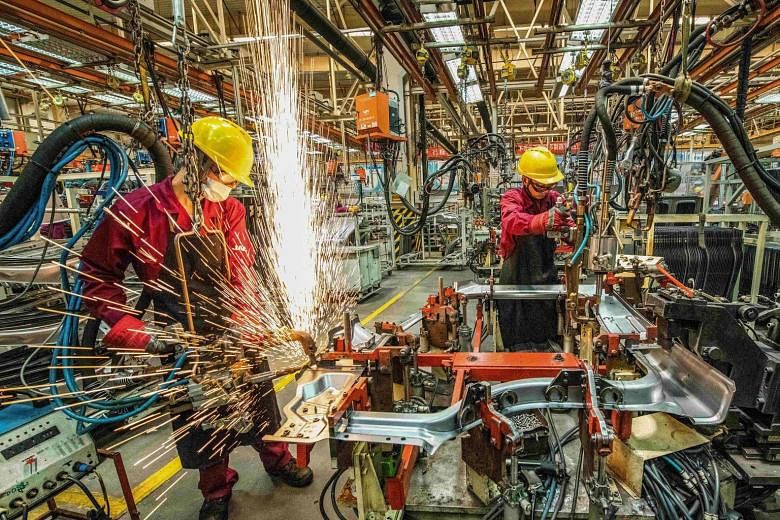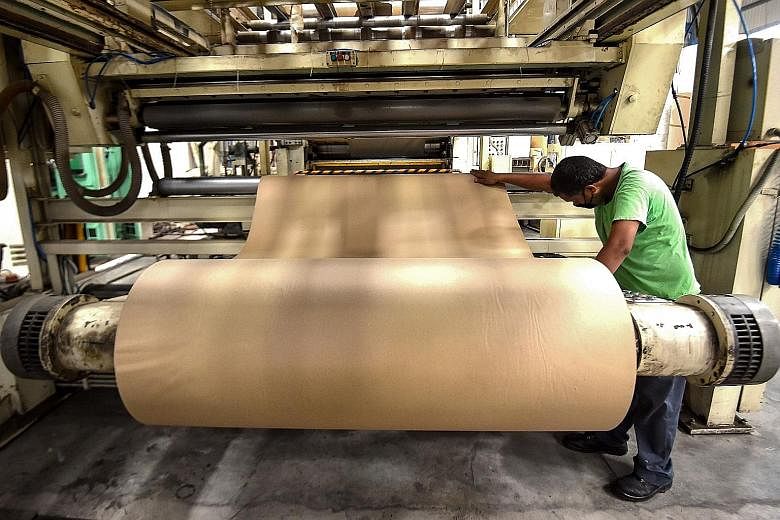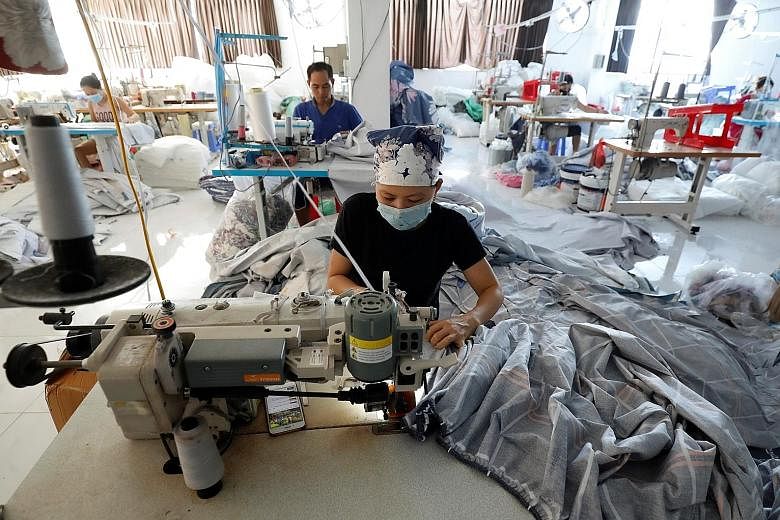TOKYO • Asia's factory managers saw glimmers of hope last month, with the region's purchasing managers' indexes (PMIs) turning up across the board as demand from China picked up.
However, sluggish global demand and fears of a second wave of infections will tame any optimism on the outlook and keep pressure on policymakers to support their ailing economies.
In China, factory activity grew at a faster clip last month, after the world's second-largest economy lifted coronavirus lockdown measures. The Caixin/Markit PMI, released yesterday, rose to 51.2 in June from 50.7 in May, marking the highest reading since December last year. That followed a similarly upbeat reading from the Chinese government's own PMI on Tuesday.
Manufacturing activity also expanded in Vietnam and Malaysia, pointing to a slow but steady recovery ahead.
India's factory activity contracted for a third straight month in June, but at a much slower pace, as both output and new orders shrank at softer rates.
The export powerhouses of Japan and South Korea continued to see manufacturing activity decline, albeit at a softer pace.
"The chance of a V-shape recovery in the manufacturing sector appears slim at this stage," said Mr Joe Hayes, an economist at IHS Markit, which compiles the survey.
"We're still awaiting signs of meaningful improvement in Japan's manufacturing sector, with the PMI for June failing to stage a substantial recovery."
Globally, the pandemic has infected more than 10 million and killed more than 500,000 people. A resurgence in new cases in several countries has prompted some governments to backpedal on plans to reopen their economies and fuelled concerns the worst is still to come.
"The host of PMI data released this morning offers some reassuring signs that the outlook for the crucial manufacturing sector continues to be on the mend," said Mr Wellian Wiranto, an economist at OCBC Bank.
But analysts expect any recovery in the region to be slow.
While China's export orders shrank at a slower pace, its employment contraction worsened, the PMI showed, underscoring the fragile recovery.
"Overall manufacturing demand recovered at a fast clip, but overseas demand remained a drag," said senior economist Wang Zhe at Caixin Insight Group.
Separately, a Bank of Japan survey showed big manufacturers' confidence sinking to levels last seen during the 2009 global financial crisis, reinforcing expectations the country was sinking deeper into recession.
"If demand doesn't rebound fast enough, companies will have to shed jobs," said Mr Shinichiro Kobayashi, a senior economist at Mitsubishi UFJ Research and Consulting. "That will delay Japan's economic recovery, which could end up in L-shape."
Analysis at Oxford Economics found that regional exports are headed for their worst outcome in years, even as the easing of lockdowns paves the way for a gradual recovery.
"The easing of global restrictions and improving Chinese demand are encouraging, but we expect regional exports to remain under pressure in the short term, given the ongoing global recession," Oxford Economics analyst Sian Fenner wrote in a note.
In South Korea, a bellwether for global trade, exports continued to contract last month, but at a slower pace than in previous months. Shipments fell 10.9 per cent from a year ago, an improvement from the 23.6 per cent slump in May.
REUTERS, BLOOMBERG



